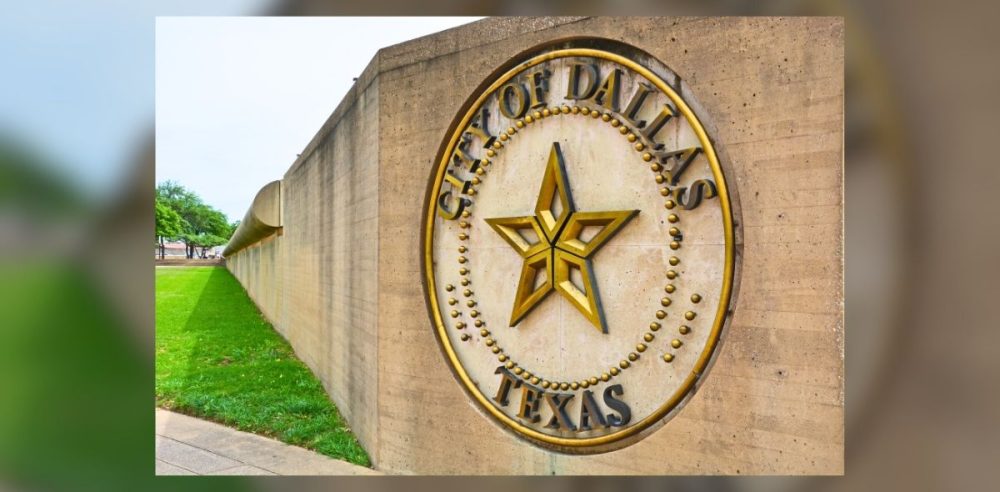The Texas Attorney General’s Office says our public information laws exist because of “the principle that government is the servant and not the master of the people,” but that does not appear to be the case in the City of Dallas.
As an investigative reporter, I have extensive experience with public information laws, including the federal Freedom of Information Act and Texas’s Section 552, also known as the Texas Public Information Act (PIA). I have filed hundreds of requests with numerous entities, ranging from small-town school boards to the CDC and FBI, and I have never seen dysfunction like the City of Dallas’ Office of the City Secretary.
On one occasion in 2024, The Dallas Express requested documents related to the 401(k) and 457(B) investment portfolio options offered to city employees. The city responded by providing a former employee’s social security number, name, address, birth date, and a variety of sensitive personal financial documents.
Not only did the city get it wrong — inadvertently or not — but it took Dallas officials weeks to even surrender the incorrect documents. By contrast, the City of Fort Worth executed a nearly identical request around the same time in a few days and without issue.
In another exchange in 2024 with the Office of the City Secretary, officials requested that the Texas Attorney General issue a decision about whether certain DEI documents could be withheld from DX. After the outlet challenged the request, the City told DX and OAG that the documents did not exist. The next day, a suspiciously small batch of requested documents materialized without an explanation.
Other issues are less dramatic but more pervasive.
Many PIA requests are left partially filled for months. At the time of this writing, I have one request for a City employee’s emails concerning the individual’s political activism. This request has been pending for about 11 months without completion. Although some documents have been released, the first batch of emails was not made available to DX until roughly 10 months after filing. Since filing this request in March 2024, the Office of the City Secretary has completed other requests, but this request remains incomplete. A handful of requests from this reporter have yet to be completed.
There is a public misconception that the PIA requires agencies to respond within 10 days. While the law appears to give the impression that fulfilling a request within 10 business days would be ideal, it is not required, and there are few provisions within the law to spur a speedier response.
In effect, the City of Dallas and other entities in Texas have 10 days to acknowledge a request. Fulfillment happens at the agency’s leisure.
Conveniently for Dallasites, the City still accepts PIA requests via email, even though other jurisdictions have discontinued this medium. However, the Open Records Portal that requesters can use to manage requests in Dallas is plagued with issues. The website is slow and frequently times out. It is hard to navigate, and the portal or payment processor often goes offline.
When payment time comes, it is nearly impossible to tell what the Office of the City Secretary will charge. Some requests will be charged nothing; others could be charged thousands.
Some of these problems are due to the subpar Office of the City Secretary’s administration. However, there is blame to share: Texas has bad laws.
The Texas Public Information Act is weak. It provides little guidance and allows jurisdictions to charge more for documents in digital formats rather than paper despite the decreasing number of physical documents in workplaces today.
Moreover, unlike federal agency laws, state law does not treat journalists and those working to inform the public about potential misconduct in government as distinct entities entitled to fee waivers.
Also, state law provides expedited processing only in extremely rare circumstances, namely, relief from denial of judicial records. When a FOIA request is filed with any federal agency, a requester can ask for expedited processing on grounds such as imminent harm, loss of due process rights, or situations where a requester needs to inform the public about government activity.
Occasionally, agencies will have additional unique grounds for considering expeditions. During the Biden administration, the Environmental Protection Agency considered “environmental justice” worthy of an expedition.
Texas’ state laws do not have to be ineffective and outdated.
Florida appears to have every other state beat when it comes to sound public policy. The Sunshine State has some of the oldest and strongest “Sunshine Laws.” In 1992, Florida voters approved a constitutional amendment guaranteeing a public right to access records and meetings. Texas should have embraced this yesterday. Texans should have a constitutional right to the documents their tax dollars pay for.
Moreover, the law surrounding public entities in Texas should catch up with the federal government. Free and fast release of documents must be available to requesters working in the public interest.
The City of Dallas must not continue to make ‘servants’ out of the citizens whose tax dollars support information records.


